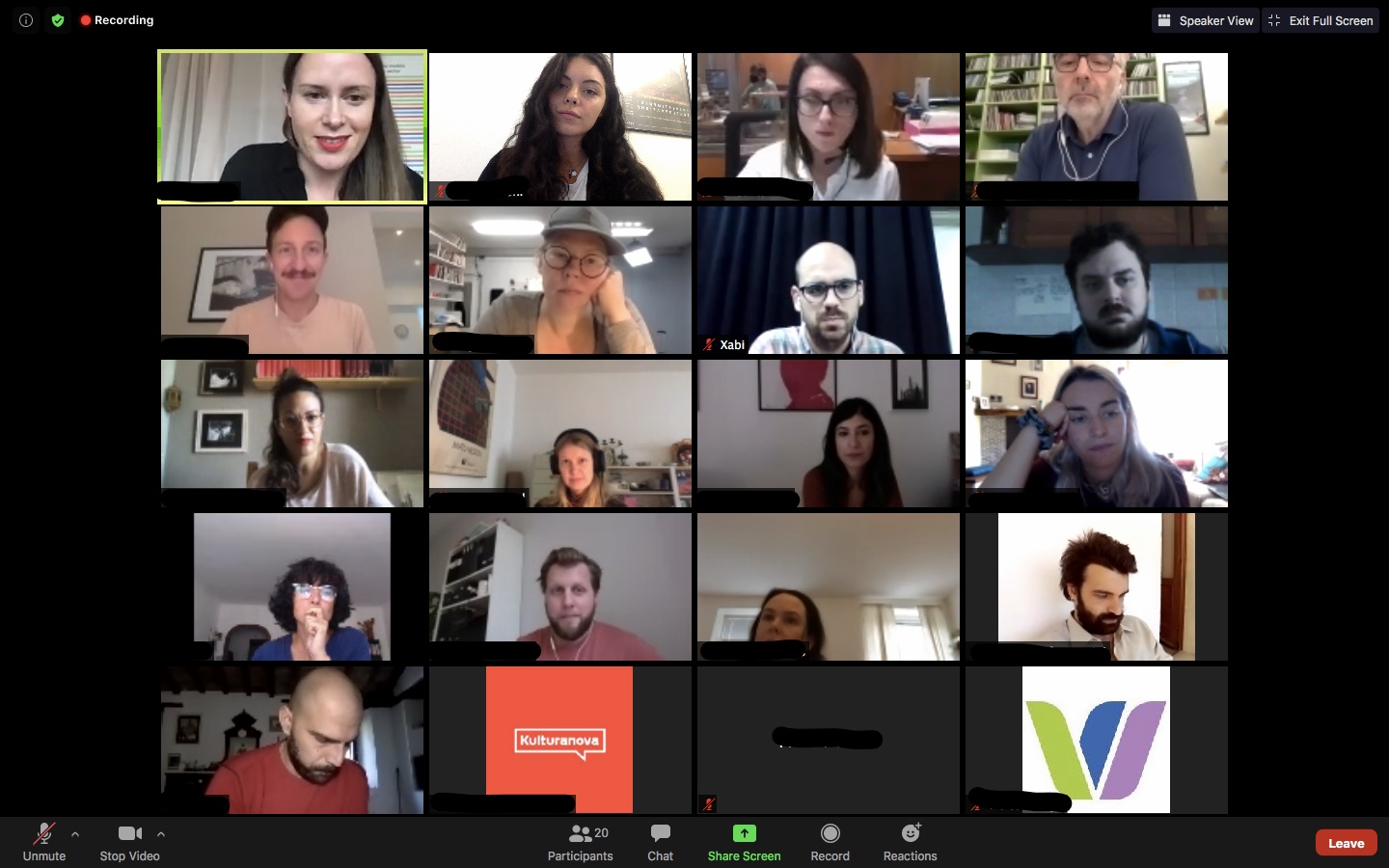Despite the circumstances that forced the project to move its Training Hotspots online, the first two-day online event “Performing arts and the shape of cities” gathered successfully all the TrainArt beneficiaries, excited to start with the project.
On the 6th and 7th October, the Swedish partner Teater Nu carried out the meeting on Zoom, in a way that allowed interesting discussions to spark from the interactions between the beneficiaries. The main topic was to evaluate the opportunities of performing arts used as innovative means to approach site development. On that behalf, participants received questions that sparked a deeper insight on each beneficiary’s role and expertise on the topic.
In addition to those sessions reserved for the beneficiaries, Teater Nu organized an open-to-all event on the 6th. Here, everyone could attend the presentations by three special guests:
- Mold, a performing arts collective that works with interactive and suggestive theater modes, based on spatial design and choreographic movement;
- Lisa Torell, an artist who works with both public and semi-public spaces and the relationship between place, language and identity in connection with systems, conventions and logic;
- Emilio Da Cruz Brandao, artistic teacher and director of Master’s Programme “Architecture and Planning Beyond Sustainability” at the Department of Architecture and Civil Engineering at Chalmers University of Technology.
Each of these speakers brought a special insight to the table. Mold stressed the importance of involving the audience, to the point of transforming them into the performer itself, and of the individuality. Lisa Torell presented performances that question the function of identity within society and public space, combining politics and aesthetics. Emilio Da Cruz Brandao focused his attention on the poorer and socially-segregated parts of a city; he aims to create a urban development that is “democratic and collaborative”, where projects and performances can bring constant benefit to less developed areas. All these small “lessons” have contributed not only to the cultural background of the participants, but also to a theoretical framework that is engaging, sustainable and socially inclusive. These pieces of information will be useful for the beneficiaries to implement their pilot actions and future projects.
Still excited from this successful first Training Hotspot, we are looking forward to the next one in November, hosted by the partner Kulturanova. Keep following us for the updates!
You can find the detailed re-cap of the Gothenburg Training Hotspot here: Gothenburg Hotspot_Final re-cap.
Podcasts are available now! Click here to listen.
Also, keep following us or subscribe to our newsletter here.

